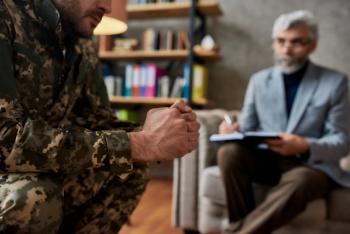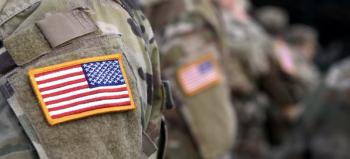
- Psychiatric Times Vol 16 No 8
- Volume 16
- Issue 8
When Johnny Comes Marching Home Again - POWs Face Emotional Challenges
With the end of the Cold War, there is a new dimension to America's military entanglements. The demise of the Soviet bloc has opened the door for the U.S. military to take a more active role in political hot spots, with the result being an increasing willingness to engage in peacekeeping and humanitarian operations throughout the world.
With the end of the Cold War, there is a new dimension to America's military entanglements. The demise of the Soviet bloc has opened the door for the U.S. military to take a more active role in political hot spots, with the result being an increasing willingness to engage in peacekeeping and humanitarian operations throughout the world.
These engagements, however, are not without risks, since indigenous groups in conflict often present dangers that are not easily discernible. The pressures and stresses these operations produce have kept military psychiatrists and other mental health care practitioners busy-responding to mental health needs as they arise and assuring as best they can that America's military men and women are combat-ready.
The last thing Staff Sgts. Andrew Ramirez and Chris Stone and Spc. Steven Gonzalez expected one morning in April was to become embroiled in an international incident that kept the nation spellbound for their entire 32-day ordeal. Suddenly surrounded and captured by Serbian soldiers, the three U.S. Army GIs became the newest prisoners of war, and their ability to survive-physically and mentally-needed to stand the test.
But more than the brutality of their captors will occupy the memories of these three soldiers. After their dramatic release following the intervention of a delegation led by the Rev. Jesse Jackson, the men were immediately thrust into the public spotlight. They experienced a whirlwind of public appearances, parades and welcoming ceremonies featuring politicians such as the president-all of which stretched their figurative 15 minutes of fame into at least a half-hour. The media, and the pop culture it informs, had a field day, imposing a different form of captivity.
"They did a really good job, and I can't thank them enough," said Ramirez in an interview with Psychiatric Times, referring to the psychological intervention he received upon his release. "We had the psychologists come talk to us, and they made me feel a lot better about the situation. They told us what other POWs had gone through back in Vietnam, and from other times, so they made us feel a lot better about it."
According to Ramirez, he had received code of conduct training, preparation on the rules to live by during captivity that is received by all military personnel, but he had not attended SERE (survival, escape, resistance and evasion)-a course more specifically designed to deal with POW issues. "It's hard to get slots for it, but they're working on it," Ramirez said. "The Army knows it's an issue."
It is likely that the entire military will be undergoing a reassessment of its mental health care components. In June, as part of the White House's Conference on Mental Health, the president and the U.S. Department of Defense (DoD) announced a two-pronged initiative "aimed at improving the mental health of service members."
According to a DoD press release, a combat stress control program will "help identify and manage stress during deployments before it adversely impacts service members' coping skills and effectiveness." Meanwhile, a successful suicide prevention pilot program devised by the U.S. Air Force will be expanded to all the services by the end of the year. The program has achieved a 50% reduction in suicides in only three years.
"There is concern about the hardiness of soldiers, particularly those at highest risk for capture, such as pilots," said Lt. Col. Dave Orman, M.D., who is the psychiatric consultant to the Army surgeon general, stationed at Fort Hood in Texas. Ultimately, a secure and confident mental attitude going in is the best defense during capture and will assure greater resiliency after release, Orman explained. As a result, the role of psychiatrists and other mental health care practitioners has evolved over the last decade to not only meet the needs of repatriated POWs, but also to enhance the psychological and emotional support for all the troops.
With post-Cold War deployments smaller than those required to meet a Soviet threat, Orman said, combat stress control units have had to adjust. Adopting a modular organizational structure, the teams that are assigned to area medical battalions draw upon the skills of psychiatrists, psychologists, social workers and technicians in a multidisciplinary effort. Even military chaplains are integrated into a system designed to attend to whatever problem may arise that could affect an individual's psychological readiness for duty.
Ultimately, however, the goal is to increase hardiness prior to a traumatic event and to provide an early intervention after the incident, said Orman. "The doctrine is to get to the soldier as soon as possible and to mobilize whatever available resources are in the field." This includes early "critical incident stress" debriefings geared toward assisting troops who have been psychologically affected by captivity or combat to remember their experiences as life events rather than traumatic events.
Orman agreed that exposure given to returning POWs has achieved even greater magnitude since the repatriations of the Vietnam era; whether all the attention is helpful or not depends to a certain extent on the individual. Nevertheless, if there are any negative repercussions, medical resources at the unit level must be prepared to handle whatever symptoms develop.
Col. Jim Stokes, M.D., a psychiatrist who is the combat stress action officer for the U.S. Army's Department of Preventive Health Services in San Antonio, said that the military is currently working on developing training components that would fill the gap between code of conduct training and the more intensive SERE courses. There is a recognition of the need to provide intermediate-level training that will better prepare military personnel for combat stressors, including the possibility of capture.
"When this training is available, I would want to see our division mental health teams and our combat stress control units getting involved to play a role as facilitators and trainers," Stokes said. "It is also a way of getting our mental health personnel working with the troops on a number of good, general stress control measures that would be useful in many other situations besides the extreme situation."
No one knows more about the pressures of becoming a prisoner of war than Lt. Col. Rhonda Cornum, M.D., a urologist stationed at the Dwight David Eisenhower Medical Center at Fort Gordon, Ga. During Operation Desert Storm, she was captured by Iraqi troops after her helicopter was shot down during an attempted rescue of a downed pilot. Severely wounded, she survived the intimidation tactics of her captors and the media swarm that engulfed her upon release as well. Although she generally shuns the press, she agreed to an interview with Psychiatric Times, viewing it as an opportunity to communicate with her medical colleagues.
Since her repatriation, she has chosen to participate in annual exams conducted by the Robert E. Mitchell Center for Prisoner of War Studies, an ongoing longitudinal investigation into the outcomes for former POWs established in 1971. Originally aimed at Vietnam-era POWs, the study was expanded to include Desert Storm veterans in 1991. Comparing data from ex-POWs to those derived from a population of matched controls, the center has initiated a number of projects to determine the effects of imprisonment, including studies of psychological epidemiology.
Cornum, who suffered two broken arms, a broken hip and a gunshot wound to the shoulder as part of her ordeal, agrees that mental health care practitioners must be available when they are needed, but she doesn't think an intervention should be automatic. When examined by psychiatrists after her release, Cornum asked them, "Do you think there's something wrong with me psychiatrically?" After they answered no, she replied, "Well then, stop sending me any more psychiatrists."
Cornum says the Army is working to determine what makes some individuals stronger than others and to inculcate those elements into individuals during training. Ultimately, whether it is genetic, environmental or the result of training, she commented, "If your act is pretty much together when you enter into a very stressful experience, your act will be together when you come out."
Articles in this issue
over 26 years ago
Gearing Up for Y2Kover 26 years ago
Lobster Alchemyover 26 years ago
Top Researchersover 26 years ago
Legal Duty of Therapists to Third Partiesover 26 years ago
Clinical Concerns in Boundary Issuesover 26 years ago
The Crisis of Present-Day Psychiatry: The Loss of the Personalover 26 years ago
Psychiatrists' Median Net Income Increased in 1997over 26 years ago
Costs, Quality of Life With Olanzapine, Risperidoneover 26 years ago
Other Hormones on BehaviorNewsletter
Receive trusted psychiatric news, expert analysis, and clinical insights — subscribe today to support your practice and your patients.






